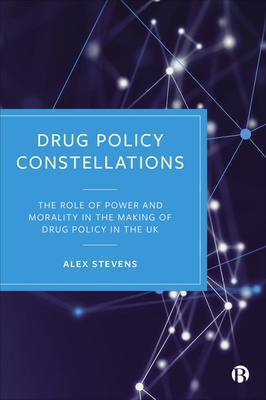Have you ever wondered why drug prohibition continues, despite its obvious failure to end drug use and the rising toll of drug-related deaths?
My latest findings have revealed that the answer is that drug policy is not based on research evidence, but on the moral commitments and material interests that motivate political action. I call these the ‘ethico-political bases’ of drug policy making. They bring together ethical ideas about right and wrong with political ideas on how power should be wielded.
The main ethico-political bases of drug policy making in the UK are compassion, traditionalism, paternalism, progressive social justice and liberty. Traditionalists tend to support control and punishment of people who use drugs. Paternalists are less interested in punishment, but avoid allowing people to make their own decisions about the risks they run. People who believe in progressive social justice see reform of drug policies as a tool to right wrongs and promote equality. Libertarians want people to be free to both use and profit from currently illicit drugs. All sides of the debate believe they are acting compassionately to reduce the suffering of people who use drugs.
Drug policy actors, including politicians, public health professionals, advocates and think tanks tend to gravitate around shared policy positions, motivated by these underlying ethical commitments. I call these loosely connected sets of actors and preferences ‘policy constellations’. They do not just bring together people, but the ideas and forms of power that they hold. The most influential policy constellations are those that have the greatest power, especially the institutional power that comes with holding high positions in government hierarchies, such as ministers and senior civil servants.
The most influential policy constellation in the UK brings together traditionalist politicians and paternalist public health professionals in the medico-penal constellation. Their overlapping interest in controlling people who use drugs, and the power they hold to enact these interests, are why the use of evidence is tilted towards supporting ongoing prohibition and punishment, rather than the liberalisation of drugs and their users through decriminalisation and legalisation.
This explains why drug policy has been slower to change in the UK than in other countries, which have different sets of ethico-political bases, and different drug policy constellations. This is, for example, why Scotland has moved faster towards harm reduction and decriminalisation than the UK government at Westminster. Scotland has a greater heritage of ethical socialism, merging equality with compassion for the poorest. Its politics are less infused with the ‘small C’ conservativism that informs the drug policy of both major political parties in England. This is why the Scottish government has endorsed the decriminalisation of drug possession and is setting up the UK’s first officially sanctioned overdose-prevention centres, where people can bring illicit drugs and use them in a place where their life will be saved if they overdose.
This is not to say that any drug policy is devoid of evidence. On the contrary, I found that all sides of the debate claim to be doing ‘evidence-based’ policy. There are reams of evidence out there for different constellations to draw on. Evidence is often used as ammunition to support previously held policy positions, rather than as the basis for developing new approaches. It has been crucial in winning the argument, where that argument has been won, for introducing harm-reduction services like overdose-prevention centres.
Things can change, and evidence can be useful in making change happen. The legalisation of cannabis-based medical products was made possible by multiple studies suggesting that the plant could be curative, as well as decades of campaigning by people who wanted to experience these benefits without being treated like criminals. It took a savvy political operation to transform the evidence into a change in the law. In the summer of 2018, the think tank Volteface publicised the moving story of Billy Caldwell, who suffered from epilepsy. By working with his mother, Charlotte, and sympathetic journalists, ministers were placed in a corner from which the only way out was to provide legal access to the cannabis medicine that prevent Billy’s epileptic seizures. This successful act of policy cornering showed how policy actors who favour liberty can ally with other constellations to create policy change, even in the face of the institutional power and inertia of the Home Office.
In 2021, Dame Carol Black used a less confrontational form of savvy social power to get the government to invest over half a billion pounds in drug treatment in England over the following three years, after a decade of cuts. She brought together allies in the medico-penal constellation around the narrative that drug treatment both saves lives and cuts crime, so satisfying the desires of traditionalist politicians to be tough on crime, as well as paternalist public health professionals’ wishes to intervene.
These are successful examples of policy actors framing the problem in specific ways, and then bringing together other actors in their constellation to effect change. Despite decades of stasis in British drug policy, there is always some room for manoeuvre. If we want more just and effective drug policies, we will have to bring together people, their ideas and powers around persuasive narratives, and not rely on the evidence to speak for itself. It never does.
Alex Stevens is Professor in Criminal Justice at the University of Kent.
 Drug Policy Constellations by Alex Stevens is available here for £80.00 on the Bristol University Press website.
Drug Policy Constellations by Alex Stevens is available here for £80.00 on the Bristol University Press website.
Bristol University Press/Policy Press newsletter subscribers receive a 25% discount – sign up here.
Follow Transforming Society so we can let you know when new articles publish.
The views and opinions expressed on this blog site are solely those of the original blog post authors and other contributors. These views and opinions do not necessarily represent those of the Bristol University Press and/or any/all contributors to this site.
Image credit: Hennie Stander via Unsplash


